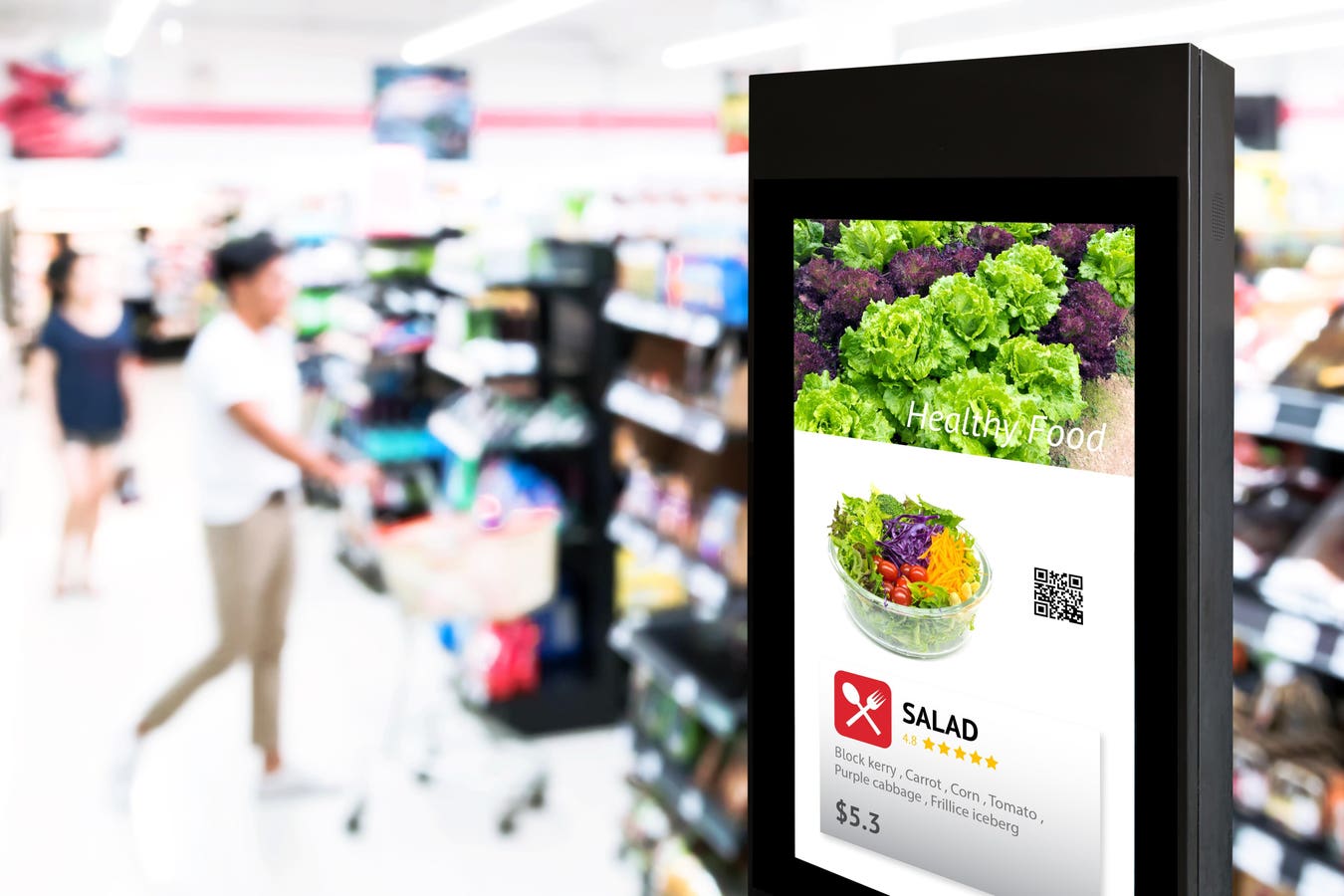Food and consumer goods companies are rapidly embracing artificial intelligence to refine their green marketing strategies, as investments in sustainable food and branding are set to surge globally in the years ahead. By 2030, spending on sustainability-focused advertising could reach $225 billion annually, up from an estimated $75 billion today, according to Valentin Saitarli, CEO of AI technology firm PRAI Inc.
“Given rapid growth in global ad spend, coupled with growing regulatory demands, shifting consumer preferences and intensifying competition, we anticipate brands will dedicate 10–15% of their marketing budgets specifically to sustainability messaging by 2030,” says Saitarli. “That would represent roughly $130–225 billion annually.”
This shift comes at a time when sustainability is no longer just a niche concern. From multinational food companies to emerging plant-based startups, brands are racing to prove their green credentials, not only to meet compliance standards, but to capture the loyalty of a generation that equates sustainability with quality and ethics.
Tastewise, an AI-driven consumer intelligence platform for the food sector, says that “Brands that focus on sustainable practices— from eco-friendly packaging to ethical sourcing— are gaining favor with consumers. AI helps brands communicate these practices effectively by analyzing which sustainability messages resonate most with their target audience.”
Behind the scenes, machine learning models scan millions of data points from social media, online reviews, recipe searches and product feedback to identify trends in real time. These insights allow brands to move beyond generic sustainability slogans, tailoring messages to the specific values of different consumer segments.
Saitarli, who previously held roles at Apple and Infosys Knowledge Institute and now lectures on AI at Florida International University, says regulatory frameworks like the EU Green Claims Directive and evolving ESG disclosure rules in the U.S. are among the most powerful drivers of this shift.
“These new rules are pushing brands to increase transparency, with sustainability communication budgets expected to rise by as much as 25%,” he says, noting that this regulatory pressure is being amplified by growing consumer demand for accountability.
Valentin Saitarli, CEO of AI technology firm PRAI Inc. says that his company expects brands to … More
Consumers Demand Transparency
“Consumer trends strongly support sustainable products, with studies consistently showing that the vast majority of Millennials and Gen Z consumers prefer brands committed to environmental responsibility,” says Saitarli.
A survey produced by global strategic consulting firm, L.E.K. Consulting found that, globally, 93% of consumers now consider sustainability important to their lives and personal values— an increase of 6% since 2019. Clear labeling and packaging helps guide sustainable choices, with about half of consumers conveying willingness to pay more for sustainable food and beverage products.
Tamsin Deasey Weinstein, a strategic advisor specializing in the application of AI across sectors and markets agrees that messaging is key. “Consumers are no longer satisfied with vague claims about products being sustainable, healthy, or environmentally friendly,” she says. “They want the facts.”
This demand for transparency has become a key opportunity for marketers. According to a Tastewise survey on “Consumer Perceptions of Food Branding in the Digital Age,” more than 85% of U.S. consumers value transparency claims that focus on environmental impact, versus other factors such as manufacturing process and product traceability.
That desire for clarity is pushing companies to rethink not just what they say, but how they say it. In this landscape, responsiveness and authenticity matter more than ever.
Clover Sonoma weaves sustainability into its brand, from USDA Organic and animal welfare … More
Sustainable Food Storytelling And Experiences
Research from Deloitte, cited by Saitarli, indicates that blending AI insights with human storytelling can boost consumer trust and brand engagement by up to 50%. The key, he says, is harnessing AI to create compelling narratives grounded in credible data— stories that resonate with consumers who increasingly prioritize environmental responsibility. When paired with human voices, such as farmers, supply chain workers or climate advocates, these tools can evoke both trust and empathy.
This fusion of science and emotion is at the heart of a growing number of successful campaigns. A recent study, for example, found that emotionally charged storytelling can significantly boost consumer interest in sustainable chocolate. When over 2,000 participants viewed social media videos about cocoa production, those exposed to emotionally framed messages, highlighting issues like child labor and deforestation, were more willing to pay a premium for chocolate labeled as sustainably sourced.
Companies are using generative AI to create immersive digital content, such as videos, social media stories or virtual experiences, that highlight sustainability messages.
PepsiCo, for example, is turning recycling into an interactive experience through a new AI-powered initiative called Oscar Sort, developed in partnership with Intuitive AI. Installed above smart recycling bins, the playful system uses computer vision and real-time feedback to guide users on how to properly dispose of their waste, encouraging correct sorting through an entertaining, game-like interface.
“PepsiCo is offering Oscar Sort as part of our award-winning pep+ Partners for Tomorrow platform that brings scaled sustainability capabilities to our customers,” says Emma Stradling, Senior Director of Sustainability for PepsiCo Beverages North America.
While promoting sustainability, the system also serves as a subtle but effective advertising tool: it reinforces PepsiCo’s environmental values at the exact moment of product disposal.
Saitarli says that the stakes are particularly high in consumer packaged goods and retail sectors. “Already, more than 40% of growth in these industries comes from sustainability-marketed products, and they could represent up to 30% of all green branding expenditures by 2030,” he notes.
“Giants like Unilever and Nestlé have started tapping AI tools to better target sustainability messages, a strategy that has yielded measurable gains in market share and consumer trust.”
Unilever’s in-house creative agency, U-Studio, is helping drive the company’s sustainability agenda by using AI to power purpose-led marketing. By analyzing and reusing the most effective elements from past campaigns, U-Studio creates content that not only promotes sustainability but is itself more resource-efficient. The approach supports Unilever’s wider goals of reducing environmental impact, encouraging responsible consumption, and advancing social good through smarter, tech-driven storytelling.
“AI is at the heart of this transformation that transcends traditional product promotion by weaving in storytelling, immersive experiences and advanced personalization,” observes Deasey-Weinstein.
AI algorithms can segment audiences based on values, purchasing behaviors, location and even sentiment, allowing brands to deliver custom sustainability narratives that feel relevant and trustworthy. Whether it’s promoting regenerative agriculture practices to eco-conscious shoppers or highlighting plastic-free packaging to coastal communities, precision is key.
According to Saitarli, “Brands deploying AI-driven analytics and personalization platforms have seen their marketing effectiveness improve by around 40%. Advanced targeting helps engage eco-conscious consumers more precisely, boosting loyalty by 25–35%.”
The Risk Of Greenwashing
But as the push for green marketing accelerates, so too does the risk of greenwashing, where brands make exaggerated or false environmental claims. Here, AI can serve as a double-edged sword. On one hand, it can process complex data across supply chains to verify sustainability claims, offering a powerful defense against credibility risks. On the other, without human oversight, AI tools alone could inadvertently amplify misleading narratives.
Kantar’s Sustainability Sector Index reveals that, while most consumers believe companies should address social (74%) and environmental (64%) issues, over half (52%) say they’ve encountered misleading claims about brands’ sustainability efforts.
This tension underscores the need for strong ethical frameworks in AI deployment.
“The balance between AI and human oversight is critical,” Saitarli warns. “AI can process information up to 10,000 times faster than humans, but ethical behavior and emotional resonance remain essential to consumers. Brands that effectively integrate AI’s precision with human judgment achieve significantly greater impact in their sustainability efforts.”
Industry leaders are beginning to respond by embedding audit tools, third-party verification and review processes into their AI systems, ensuring that sustainability messaging is not just data-driven but also ethically sound. Researchers such as those at the Cognition, Narrative, and Culture Lab at Florida International University are developing advanced AI tools to identify disinformation campaigns that use narrative persuasion to influence public perception and behavior.
Ultimately, Saitarli argues, companies that integrate AI effectively in their marketing campaigns, while maintaining transparency and ethical rigor will not only navigate rising scrutiny but also build lasting loyalty among consumers eager for brands that match their environmental values.
“Optimal integration of advanced analytics with authentic human input,” he said, “will define the next generation of sustainable food branding.”




